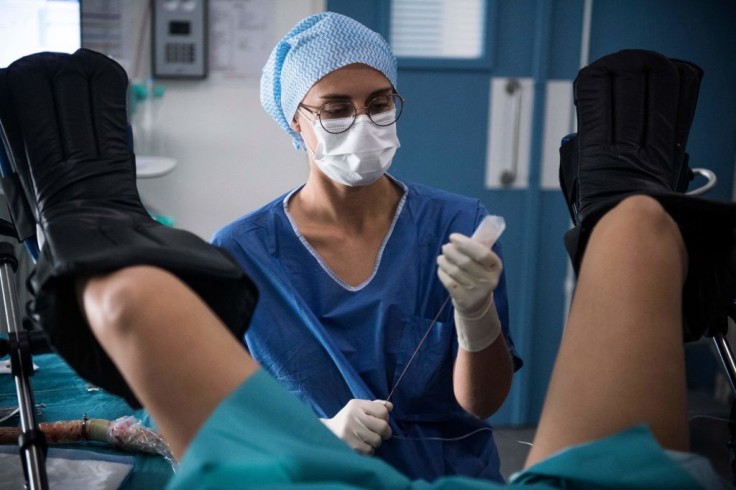
Although the prospect of extracting eggs from your ovaries might appear alarming, it's a fairly routine procedure with the slightest side effects.
3 Reasons for Undergoing Egg Retrieval
- They are undergoing in vitro fertilization (IVF), a fertility medication that includes retrieving eggs from the ovaries, fertilizing them with sperm, and embedding the leading embryos into the uterus.
- They are freezing eggs for forthcoming use, usually due to concerns about lessening of egg quality or quantity.
- They are donating eggs to others in need.
Regardless of the intention, the egg retrieval process commonly follows a constant schedule: preparation including fertility treatments for about two weeks, followed by a surgical procedure to retrieve the eggs, and then a day of recuperation.
Preparation includes an examination to evaluate egg count and hormone levels, followed by a personalized treatment protocol to provoke the growth of numerous eggs.
Injectable fertility treatments are commonly self-administered for one to two weeks, with monitoring through ultrasounds and blood work. A "trigger shot" is given to induce egg release just before retrieval.
Side effects of the treatments can include headaches, mood swings, and mild fluid retention. In unique cases, ovarian hyperstimulation syndrome (OHSS) may happen, causing abdominal aches and other manifestations.
The 3 Key Phases of Egg Retrieval - Before, During, and After
The egg retrieval process itself is somewhat brief, but the readiness leading up to it is more comprehensive. Here are the primary stages in the egg retrieval process.
Preparation for Egg Retrieval with Medication
While it's known that female infants already possess the egg cells that will later mature upon reaching sexual maturity, not all eggs are utilized. Through oogenesis, a woman's eggs transition into mature eggs capable of fertilization.
Typically, one egg matures at a time and is released during ovulation. However, for egg retrieval, the body needs to generate numerous eggs at the same time for extraction.
To obtain this, doctors conduct treatments, either orally or via injections, to provoke egg production and maturation. Additional treatments may be prescribed to avoid premature ovulation.
During retrieval, fertility specialists assess the individual's egg health over the preceding weeks.
Therefore, if considering egg freezing, adopting certain dietary and lifestyle habits can be advantageous to egg health, such as increasing protein intake, consuming whole foods rich in fruits and vegetables, minimizing inflammatory foods, abstaining from alcohol and smoking, and considering prenatal vitamins. External factors like air quality can also influence egg quality.
It's worth noting that in rare instances, these injections may lead to ovarian hyperstimulation syndrome, characterized by abdominal pain due to ovarian swelling.
Close communication with the doctor regarding any symptoms is crucial for safety throughout the process.
The Egg Retrieval Procedure
The existing egg retrieval procedure is a short outpatient surgical process, commonly causing mild cramping or displeasure afterward.
After the procedure, a few hours of recuperation are essential before being discharged home to rest. Given the anesthesia used, arranging for transportation post-procedure is advisable.
Processing Eggs Post-Retrieval
For egg donors, retrieved eggs may be frozen or prepared for embryo formation.
In IVF preparation, eggs are combined with sperm to create embryos, which are then implanted into the uterus. Alternatively, for those freezing their eggs, they are stored until needed.
Further Expectations Post-Retrieval
Following retrieval, individuals may experience normal pain and cramping, with a relatively short recovery period due to the outpatient nature of the procedure.
Weight gain, typically attributed to water retention and ovarian hyperstimulation, may occur. Any significant weight gain or symptoms should be promptly reported to the fertility doctor.
Post-retrieval, individuals may experience discomfort and bloating, but recovery is generally swift. It's essential to follow any dietary constraints and rest as required.
Patients are suggested to research clinics, understand the probable dangers, and ask questions to guarantee informed decision-making about the process.
The egg retrieval procedure itself is performed under twilight anesthesia, involving the insertion of a needle through the vaginal wall into the ovaries to extract mature eggs.
Recovery typically takes about one to two hours, with minor side effects such as constipation and cramping.
While some discomfort and side effects may persist initially, they tend to diminish rapidly post-retrieval. Complications are uncommon, and there is no substantial evidence of long-term effects from the retrieval process or IVF.
Related Article: 10 Tips for a Healthy Pregnancy Throughout the Entire 9 Months